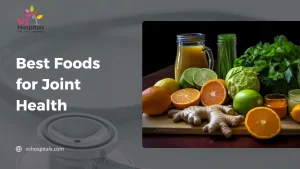Best foods for kidney disease can make a significant difference in managing and improving kidney health. For those dealing with kidney issues, a mindful diet can reduce the strain on the kidneys, support bodily functions, and improve overall well-being. We’ll uncover the best foods for kidney disease, provide useful tips, and offer practical advice for maintaining kidney health.
Diet and Kidney Disease
A thoughtful diet is essential for anyone managing kidney disease. Choosing the best foods for kidney disease can reduce the kidneys’ workload, helping to slow disease progression and improve daily wellness. For patients on a kidney failure diet plan or a low-protein diet for kidney patients, focusing on foods that are low in sodium, potassium, and phosphorus is key.
- Low Sodium: Helps prevent fluid buildup and keeps blood pressure stable.
- Low Potassium: Reduces risk of heart complications by managing potassium levels.
- Low Phosphorus: Prevents bone disease and manages mineral levels.
By following these dietary principles, patients can better support kidney function and overall health.
10 Foods That May Improve Kidney Health
1. Cauliflower
Cauliflower is a nutrient-rich vegetable that supports kidney health due to its low potassium content. It’s a great source of fiber, which aids digestion, and contains important vitamins like C and K. Cauliflower also provides antioxidants that help reduce inflammation, a common concern for those with kidney disease. Adding cauliflower to a kidney failure diet plan provides essential nutrients without overloading the kidneys.
- Low in potassium and phosphorus
- High in fiber and antioxidants
- Supports healthy digestion
2. Blueberries
Blueberries are packed with antioxidants and are known for their low potassium levels, making them ideal for a low-protein diet for kidney patients. The antioxidants in blueberries combat inflammation and support heart health, which is especially important for kidney disease patients. With their natural sweetness, they’re a healthy snack option that fits easily into a kidney-friendly diet.
- High in antioxidants
- Low in potassium and kidney-friendly
- Supports heart and overall health
3. Sea Bass
Sea bass is an excellent source of high-quality protein and omega-3 fatty acids, which help reduce inflammation and protect heart health. Unlike many other fish, sea bass is relatively low in phosphorus, making it a good protein choice for those on a diet for kidney disease patients. It’s a nutritious option that provides essential fats while being gentle on the kidneys.
- High in omega-3 fatty acids
- Relatively low in phosphorus
- Provides essential high-quality protein
4. Red Grapes
Red grapes contain antioxidants, such as flavonoids, that reduce inflammation and support heart health. They’re low in potassium, which is ideal for those following a kidney failure diet plan. Their naturally sweet taste makes red grapes a satisfying and nutritious snack for kidney patients, providing vitamins and hydration without straining the kidneys.
- Low potassium, kidney-friendly
- Packed with anti-inflammatory antioxidants
- Naturally hydrating and refreshing
5. Egg Whites
Egg whites are an excellent protein source without the added phosphorus found in egg yolks, making them suitable for a low-protein diet for kidney patients. They’re gentle on the kidneys and provide essential amino acids, supporting overall body health without causing kidney strain. Adding egg whites to meals is an easy way to meet protein needs.
- Low phosphorus, safe for kidney health
- Provides essential amino acids
- High in protein without overloading the kidneys
6. Garlic
Garlic adds flavor without the need for added salt, a crucial factor for kidney disease patients. It contains anti-inflammatory compounds that benefit kidney health and is a great alternative seasoning in a diet for kidney disease patients. Garlic also supports immune function, which can be beneficial as kidney function declines.
- Low in sodium, a salt-free flavor enhancer
- Contains beneficial anti-inflammatory properties
- Supports immune system function
7. Buckwheat
Buckwheat is a gluten-free whole grain that’s low in phosphorus and potassium, making it a great carbohydrate option for a kidney failure diet plan. It’s high in fiber, helping to promote healthy digestion, and provides energy without straining the kidneys. As a versatile grain, buckwheat can be used in a variety of recipes.
- Low in phosphorus and potassium
- High in fiber and energy-supporting nutrients
- Gluten-free, suitable for diverse diets
8. Olive Oil
Olive oil is a healthy fat source with anti-inflammatory properties, ideal for kidney disease patients who need to manage their caloric intake without increasing kidney strain. It’s naturally low in phosphorus and adds rich flavor to dishes. Olive oil is especially beneficial for those on a low-protein diet for kidney patients as it provides healthy calories.
- Rich in healthy fats and calories
- Naturally low in phosphorus
- Anti-inflammatory and heart-healthy
9. Bulgur
Bulgur is a whole grain that’s low in phosphorus and potassium, making it suitable for a diet for kidney disease patients. It’s fiber-rich, which supports healthy digestion and blood sugar control. Bulgur is versatile and can be used in salads or as a side dish, making it a convenient and nutritious grain option.
- Low phosphorus and potassium content
- High in fiber for digestion
- Suitable for versatile meal options
10. Cabbage
Cabbage is packed with vitamins and fiber but low in potassium and phosphorus, making it a staple in a kidney-friendly diet. It provides vitamin C, which supports immune health, and fiber, which promotes good digestion. For those following a kidney failure diet plan, cabbage is an easy and affordable way to add nutrients to meals.
- Low in potassium and phosphorus
- High in vitamins C and K
- Supports immune and digestive health
Benefits of a Kidney-Friendly Diet Plan
A well-designed kidney-friendly diet plan can significantly enhance the quality of life for those with kidney disease. By focusing on the best foods for kidney disease, patients can manage symptoms, slow disease progression, and promote overall health. A balanced diet that includes low-protein options and minimizes sodium, potassium, and phosphorus can reduce the kidneys’ workload, easing strain and improving function.
- Heart Health: Many kidney-friendly foods, like blueberries and olive oil, promote cardiovascular health.
- Reduced Inflammation: Foods with anti-inflammatory properties, such as garlic and sea bass, support kidney health.
- Energy Boost: Balanced, nutrient-dense meals maintain energy levels and support general well-being.
Foods to Avoid in a Kidney Diet Plan
Following a kidney-friendly diet is essential for those managing kidney disease. While focusing on the best foods for kidney disease is beneficial, it’s equally important to avoid foods that can put extra strain on the kidneys. Certain foods high in sodium, potassium, and phosphorus can negatively impact kidney function and overall health.
- High-Sodium Foods: Processed meats, fast foods, canned soups, and salty snacks.
- High-Potassium Foods: Bananas, oranges, potatoes, and tomatoes.
- High-Phosphorus Foods: Dairy products, nuts, seeds, and whole grains.
Avoiding these foods can reduce kidney strain, support balanced health, and help manage symptoms effectively.
Conclusion
Choosing the best foods for kidney disease can have a transformative effect on kidney health. Simple dietary changes can support kidney function, lessen symptoms, and contribute to overall wellness. A well-planned diet, including low-protein and nutrient-rich foods, reduces strain on the kidneys and promotes long-term health. Following a tailored kidney-friendly diet can make a big difference in quality of life. For personalized diet advice, consult the kidney health experts at VS Hospitals and take steps toward improved kidney wellness.




